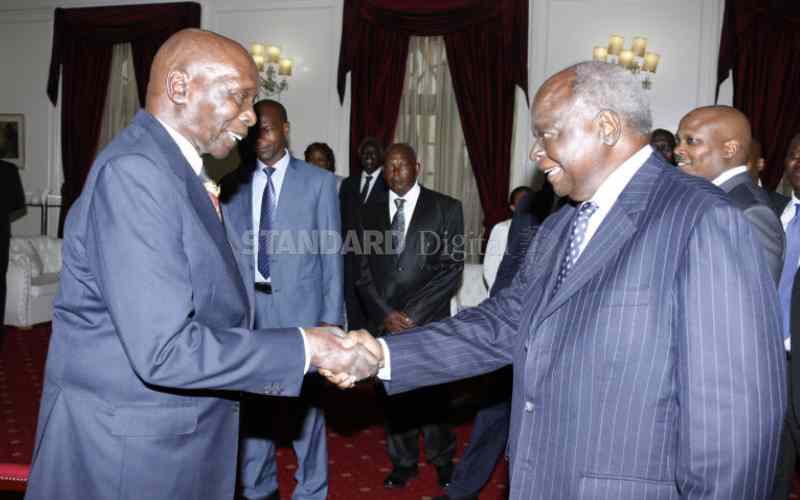×
The Standard e-Paper
Smart Minds Choose Us

Former President Daniel Moi and Mwai Kibaki at State House, Nairobi, in November 2015. [DPPS]
Once Daniel arap Moi took over as President in 1978 and constituted his Cabinet in October the same year, he retained Mwai Kibaki in the Finance docket and elevated him to the vice presidency.